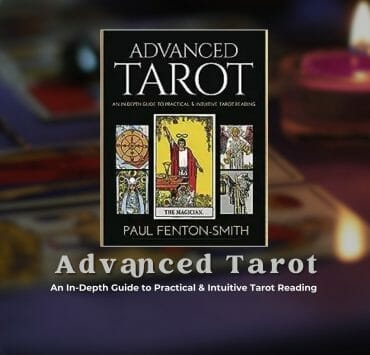Highly Sensitive Persons, Healing, and the Power of Language

Highly Sensitive Persons tend to be more “aware” of his or her inner world.
Mind Your Language with Highly Sensitive Persons!
by Peter Messerschmidt
Many of us embark on personal journeys of healing.
Healing from old wounds, healing from traumatic childhoods, healing from old “addictive habits,” and even healing from what we might perceive as “past life junk.”
The Highly Sensitive Person– or “HSP”– tends to be more “aware” of his or her inner world and generally spends more time in introspection than most people. HSPs are also more aware of subtleties, feelings, and tiny patterns, which can be a wonderful gift… but it means we are also more deeply affected and influenced by the ups and downs of our lives. As a result, we’re more susceptible to getting bogged down in endless analysis when we hit life’s challenging patches.
Why?
Because we’re simply more likely to “pay attention” to the stories and language we use to narrate our lives.
Consequently, sharing that story with appropriate and “mindful” words can be especially important for HSPs. Of course, we don’t always like to stay awake because rigorous self-inquiry– that is, telling the real story– is not always pleasant and can be outright scary when we come face-to-face with “less than attractive” parts of ourselves. But the benefits of “Calling Things What They Are” almost always outweigh the downsides.
Here are a few “Language Traps” to consider and brief explanations of how we sometimes use them as barriers against our progress.
Feelings are Feelings, not Facts
Because HSPs “feel things deeply,” we tend to spend a lot of time immersed in the inner landscapes of our feelings. In fact, many spend so much time there that they become “identified” with their feelings.
But however intense these feelings may be, we must remember that feelings are something we feel, not something we are. They are transient, not permanent. And we must remember this when we talk (both in internal dialogue and with others) about what’s happening to us. We must stay mindful of our language:
- Don’t say, “I am angry!” when the truth is, “I feel angry!”
- Don’t say, “I am sad,” when the truth is, “I feel sad.”
- Don’t say, “I am so hurt,” when the truth is, “I feel so hurt.”
When you are a Highly Sensitive Person, this can be one of the most difficult things to do because we tend to interpret our feelings as “facts,” not as feelings. The power of our feelings seems overwhelming, but even so, they are still “just feelings.”
If you recognize yourself in this particular language trap, try consciously calling feelings “what they truly are.”
On a conscious level, it may seem like a very small thing. Still, subconsciously, you are changing the “story” you’re telling yourself, correctly identifying what you’re feeling as something transient rather than permanent.
The Trap of Saying “I Can’t:”
Another major language trap is characterizing a challenge with the phrase “I can’t!”
I “can’t” go to the doctor to have this skin rash examined, I “can’t” quit my job, I “can’t” manage money, I “can’t” tell my toxic friend to stop calling… most of us have used that phrase at one time or another.
At its root, “I can’t” is basically a cop-out; it’s an excuse we use to avoid looking directly at– and speaking– the truth: I don’t want to go to the doctor because I’m afraid or I don’t like dealing with my finances or whatever the issue may be.
“I can’t” becomes a trap because it’s a way we allow ourselves to abdicate responsibility and accountability for difficult issues in our lives, some of which may force us to look closer at our inner “shadows.”
We also tend to make situations worse when we use “I can’t” in contexts where we are faced with a choice between two unpleasant outcomes: We say things like “I can’t” when faced with an option like leaving an emotionally abusive spouse and suddenly having to “deal with everything ourselves” and staying and continuing to be emotionally abused.
In a sense, “I can’t” becomes a way of making a decision by not making a decision, a way to postpone dealing with unpleasant realities which– in the end– may cause us even more pain than would be caused by taking current action in our own lives.
As an exercise, watch your language and observe if or when you use the phrase “I can’t” as an avoidance tool– either as a way to avoid expressing your own truth honestly (“I have no interest in learning about managing money”) or as a way to sidestep dealing with a difficult or fearful situation (“I can’t ask for a raise”). Adopt the habit of expressing yourself without returning to “I can’t” in such situations. Practice telling the truth, even if only to yourself, using phrases like “I don’t like to,” “I don’t want to,” or “I’m afraid to” instead of “I can’t.”
Again, the difference in phrasing may seem subtle– on the surface– but you’re quietly changing the context of your personal story from having permanent (“I can’t”) obstacles to temporary (“I’m afraid to”) ones.
Generalizing: Isolated Events Do Not a Trend Make
Sweeping generalizations can also be a Language Trap.
Paradoxically, HSPs tend to be very generous, mindful, and sensitive with their words when describing others but less so with words describing ourselves. We forgive a million sins committed by others but condemn ourselves for a single mistake. This means we easily fall into “untrue” ways of describing our lives, the things or events we are part of– and perceive as negative– by labeling them as something we “always” or “never” do.
“I’m useless with money. I always overdraw my account at the end of the month!” we may say when the truth is that we’ve been overdrawn exactly twice in the past 18 months. “I can never maintain friendships!” we lament when the truth is that one friend got married and simply chose to spend more time with their new spouse (quite natural), and another moved four states away. Maybe we claim that we “always attract toxic people who use us,” when the truth is that the vast majority of the people in our lives are nothing of the sort.
These generalizations may have their root in unrealistic expectations we create if we have tendencies towards perfectionism– a common HSP issue. Although these thoughts occur to everyone at one time or another, they feel more intense for HSPs because they are overlaid with the HSP trait of conscientiousness, which– in turn– can lead us to become overly obsessed with “never doing anything wrong” and beating ourselves up whenever something doesn’t go as planned.
Stay aware of whether you are really being truthful when you make statements about events in your life. Practice saying, “I’ve messed up my bank account a few times,” when you feel tempted to say, “I always mess up my finances.”
To Want… Or Not To Want:
Last– but certainly not least– be mindful of negative phrasing because it can be one of the most pervasive– yet subtle– “Language Traps” in our lives.
What does that mean, exactly?
There are many instances in which we have a pretty good idea of something we want in our life– relationships, careers, projects, finances, lifestyle– and yet we succumb to a pattern of not asking “directly” for them. Instead, we believe we are stating what we “want” by instead making a list of all the things we don’t want… and then we end up feeling stuck because even though it seems like we’ve done the work on ourselves and identified our wants, needs and desires it seems like “nothing ever changes.”
I’ll avoid getting into the many “programs” within the conscious community that focus on this issue– from “positive affirmations” to “The Secret”– and just briefly touch on the underlying psychology of positive phrasing.
Consider, for a moment, a fictional person who’s at his or her wits end over seemingly always attracting “mentally ill chaos mongers” in his or her relationships.
This person may even have developed a long “laundry list” of attributes of a desirable relationship partner based on these past painful and chaotic encounters. However, if the top item on their list is “no mentally ill chaos mongers,” it’s a good bet the relationship pattern will not change… and a couple of years hence, our fictional person will once again be lamenting the “mentally ill chaos mongers” dominating his or her life.
Why?
As an example, consider that old psychological party trick: If I ask you to “NOT think of a pink elephant,” what happens? The first thing you think of is a pink elephant!
By extension– no matter how evolved you may be and how positive your intent may be– if you focus on not attracting “mentally ill chaos mongers,” what is the key phrase you are going to be honing in on? Your “spiritual keywords”– like a Google search– are going to be “mentally ill chaos mongers.” The “no” just sort of vanishes. What you truly want— let’s call it “healthy and well-adjusted”– is never part of your search!
Because HSPs are exceptionally good at “paying attention,” this particular language trap can keep us stuck in negative patterns without our really understanding why.
As an exercise, take a couple of weeks to truly examine your language:
- Do you feel “happy” or “not unhappy?”
- Are you trying to “succeed” or “avoid failure?”
- Do you feel “well” or “not bad?”
- Do you desire “quiet” or “not a lot of noise?”
Even if you think of yourself as a positive person, you may be surprised!
The above suggestions for “minding your language” is merely a partial list of the “language traps” we use– there are many more, but they are too numerous to cover in full– so this article is merely intended as an introduction to being mindful and conscious with your language. Although these words were written mainly with HSPs in mind (If you’re not entirely sure what an HSP is, please refer to my introductory article on this topic), they could certainly be relevant for anyone on a path of personal understanding and healing.
Click HERE to Connect with your Daily Horoscope on OMTimes!
Visit Our Astrology Store for Personalized Reports
About the Author
Peter Messerschmidt is a writer, beachcomber, rare stamp dealer, and eternal seeker. When he’s not wandering the beach or the Internet, he facilitates groups & retreats for HSPs, and shares his musings at “HSP Notes,” the web’s oldest HSP-specific blog, at http://hspnotes.com. He lives in Port Townsend, WA with the great love of his life and several furry “kids.”
Originally published Nov 30, 2013
OMTimes is the premier Spiritually Conscious Magazine. Follow Us On Facebook, Twitter, Instagram, Linkedin, Pinterest, and Youtube
OMTimes Magazine is one of the leading on-line content providers of positivity, wellness and personal empowerment. OMTimes Magazine - Co-Creating a More Conscious Reality









I am a fan of Peter and what he write, but the way this article is broken up and must be clicked through in tiny increments is the pits.
Peter- this is an absolutely fabulous article. I work with introverted women in the areas of healthy assertiveness and self expression, and many of them are also highly sensitive. This article accurately and succinctly calls attention to both of these areas well, not to mention the topic of perfectionism. I love how you’ve delivered the concepts. Thanks for this fabulous write-up!
I agree! All of the articles read that way. It’s terrible!
INDEED!
i hate all articles that do that on all websites, and usually don’t read the ones do because of it.
This is a really good article, and very informative about a lot of issues that I face, but a lot of really distracting things are happening on these blog pages. The sidebar for sharing covers some of the type, a video popped up and just started playing before I even switched to the window I had put it in. It’s actually a chore to read it. And I agree… too many breaks. Sorry to be Debbie Downer, but I love this blog. I’ll just have to read it on Feedly I suppose.
yup,this explains myself !and more …peace 🙂
In those silly web design classes they teach you that displaying long continuous articles is bad design. Apparently they believe the modern reader can’t handle more than a screen-full at a time. I prefer the 1990s whole hog approach.
So agree. Websites need to quit bogging down the consumers with advertising platformas that drive us away. Annoyance = CLICK…I’m GONE!
I am not a highly sensitive person! It is probably NOT easy for a person like that to live b/c people will try to take advantage of you! My advice is to: 1. Try to say: No! I think people like that can’t say: No! 2. Get rid of toxic people from your life! Get rid of them-they will drain you! 3. Learn how to manage your money-take classes/programs-you have to do it to survive! 4. Don’t lent money to anyone b/c people will not give it back! 5. Don’t invest anything in anyone’s business! Keep friendship and business separate-this is the American way! We don’t mix friends and business partners! You can only be one or the other-you cannot be both. Besides, it is better to have friends from different industries anyway. If your friends’ business is not going well, that’s his problem-that’s a harsh reality and the American way. He is hurt-that’s OK! I rather he gets hurt than I get hurt. Relatives-I don’t deal with them really. If you feel, people are jelous-get rid of them quickly. No mercy!!!!! No mercy for anyone!!! Be nice but cut them out!!! Nicely!
and please I don’t need christian overtones while trying to read a blog. Nothing wrong with Christianity, but I don’t go on a site trying to read to be hit with “the holy spirit” screaming in an autoplay version. Can we please just mute this stuff at OMTimes rather than making me furiously run through a website trying to fugue out where the ads are to turn them off? Please!
Now having read this blog I shall leave period. Judgmental much???? (talking about the blog piece),